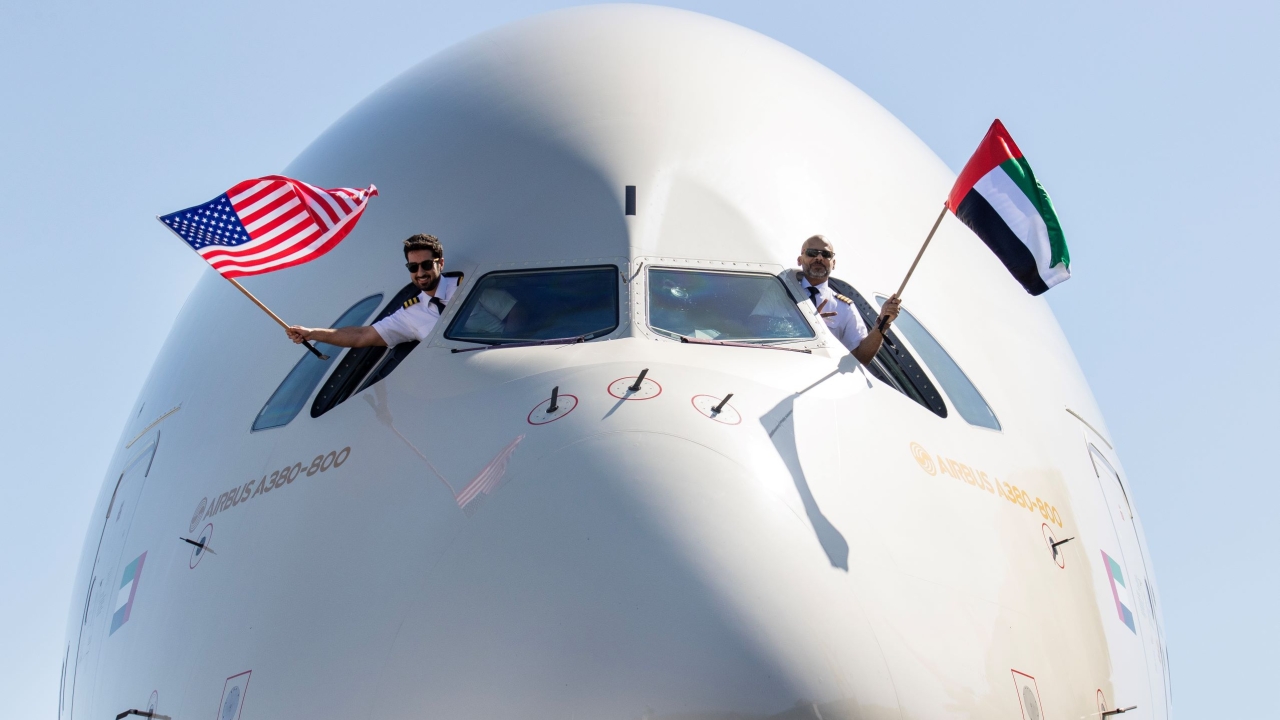Bahrain all set to unblock the Combi
Visitors to next year's Bahrain International Airshow could well get their first view of the new PEMCO B737-700FC FlexCombi. Barbara Saunders reports.

The launch customer for the new 700-series conversion programme, Bahrain-based Chisholm Enterprises, is hoping to debut the aircraft – its first fully owned airliner – subject to certification approvals.
Chisholm, a regional provider of tailored aviation and business solutions, is hoping to put the new B737-700FC into service with its Bahrain-based Texel Air non-scheduled cargo airline subsidiary in the third quarter of 2018.
Seven-figure investment in the B737-700FC was made, according to Chisholm CEO George Chisholm, to “future proof” the three-year-old Texel Air to meet varied customer needs. It followed “many months of research”.
Market and technical research centred around finding a cost-effective solution that would take Texel Air into the next decade “by creating a new platform with increased payload and configuration flexibility”, according to Chisholm.
“Texel Air currently operates as an ad-hoc charter cargo airline, serving niche gaps in the market, or when schedule flexibility is required,” explained Chisholm. “Over the years, the company has received charter requests for capacity that required cargo uplift supported by small numbers of passengers, such as hunting parties and rock bands. For instance, it was involved in the Boni Jovi and Yanni Middle East tours.
“Traditional combi configurations or quick-change aircraft do not satisfy this demand.
“We looked at splitting the business, but that wasn’t viable and we, therefore, decided to further develop the ability to be able to change an aircraft’s configuration to match market needs, as opposed, for example, to chartering in passenger aircraft to complement cargo shipments.”
With the requirement identified, Chisholm studied many different types of aircraft and combi concepts from traditional, off-the-shelf combi supplementary types, to developing removable modular pod-based compartments for existing cargo aircraft, similar to ones used on C-130 VIP aircraft.
“We concluded that the pod-based modular system was not economically viable and other aircraft options were not suitable, with existing combi interior configurations geared more to passenger numbers rather than cargo space, with limited ability to increase flexibility,” explained Chisholm.
Discussions were held with a number of potential partners to help develop the concept of a three layout of passenger accommodations (LOPA) FlexCombi aircraft. The company turned to PEMCO, which it had worked with on four previous B737-300 conversions, to develop its sought-after freight-cum-combi-cum-quick change hybrid. “We were very confident of their ability to provide a one-stop-shop for all supplemental type certifications (STCs) required from cargo door, cargo conversion to FlexCombi.
“We chose the B737-700 based on availability, capital cost, STC design, conversion cost, operating performance into smaller regional airports with shorter runways, increased range, payload requirements and our own experience of operating the aircraft for the past 10 years.”
The first of its kind, the FlexCombi, will allow Chisholm to switch between three different LOPAs with minimal man-hours for conversion process once aircraft in the field. “We can move between carrying six pallets and 24 economy seats; seven pallets and 12 economy seats to eight pallets,” explained Chisholm. “The removable bulkhead gives us increased flexibility to meet cargo-passenger separation requirements.”
Over the next three months, Chisholm will also work with PEMCO and suppliers to evaluate additional features, such as head-up display and enhanced vision system, rear full galley, rear toilets and air stairs and iPad-compatible in-flight entertainment systems. “We will not be able to opt for them all but will be looking at where we can enhance capabilities and passenger comfort. The head-up display, for instance, is now really a standard expectation these days and will also enhance safety when flying into lesser-known, secondary airfields,” explained Chisholm.
Texel Air will provide maintenance support for the FlexCombi under its Bahrain-145 approval. The airline, which is increasingly moving into the maintenance, repair and overhaul sector, also holds European Aviation Safety Agency (EASA)-145 and Cayman-145 certification for the entire B737 and A320 families.
PEMCO will induct the first aircraft for B737-700 passenger-to-FlexCombi modification at its facilities in Tampa, Florida, during the second quarter of this year. It expects to receive a US Federal Aviation Administration STC by mid-2018.
Shortly after the initial issuance, PEMCO plans to certify both B737-700 conversion programmes with EASA and the Civil Aviation Administration of China.
Stay up to date
Subscribe to the free Times Aerospace newsletter and receive the latest content every week. We'll never share your email address.

